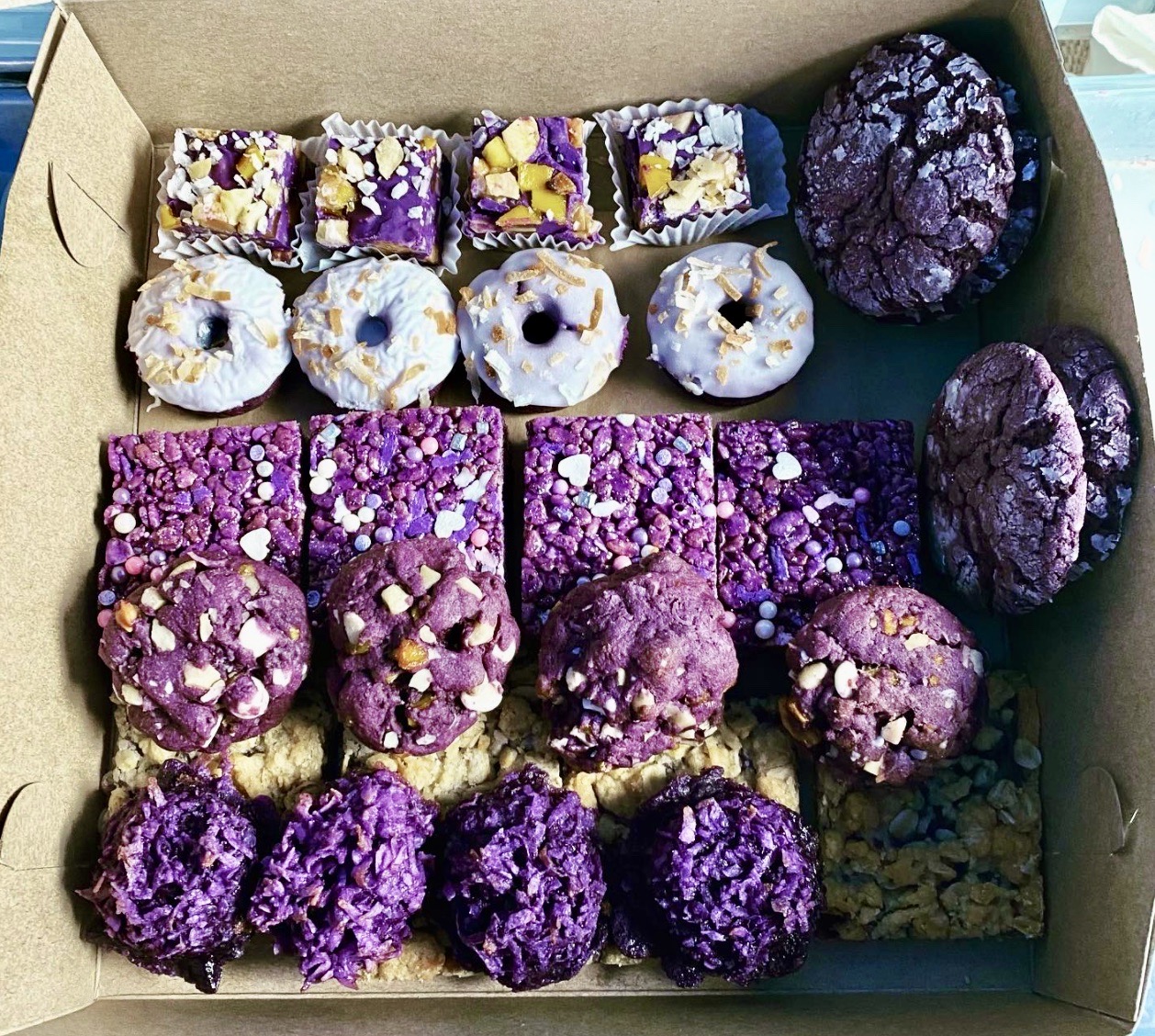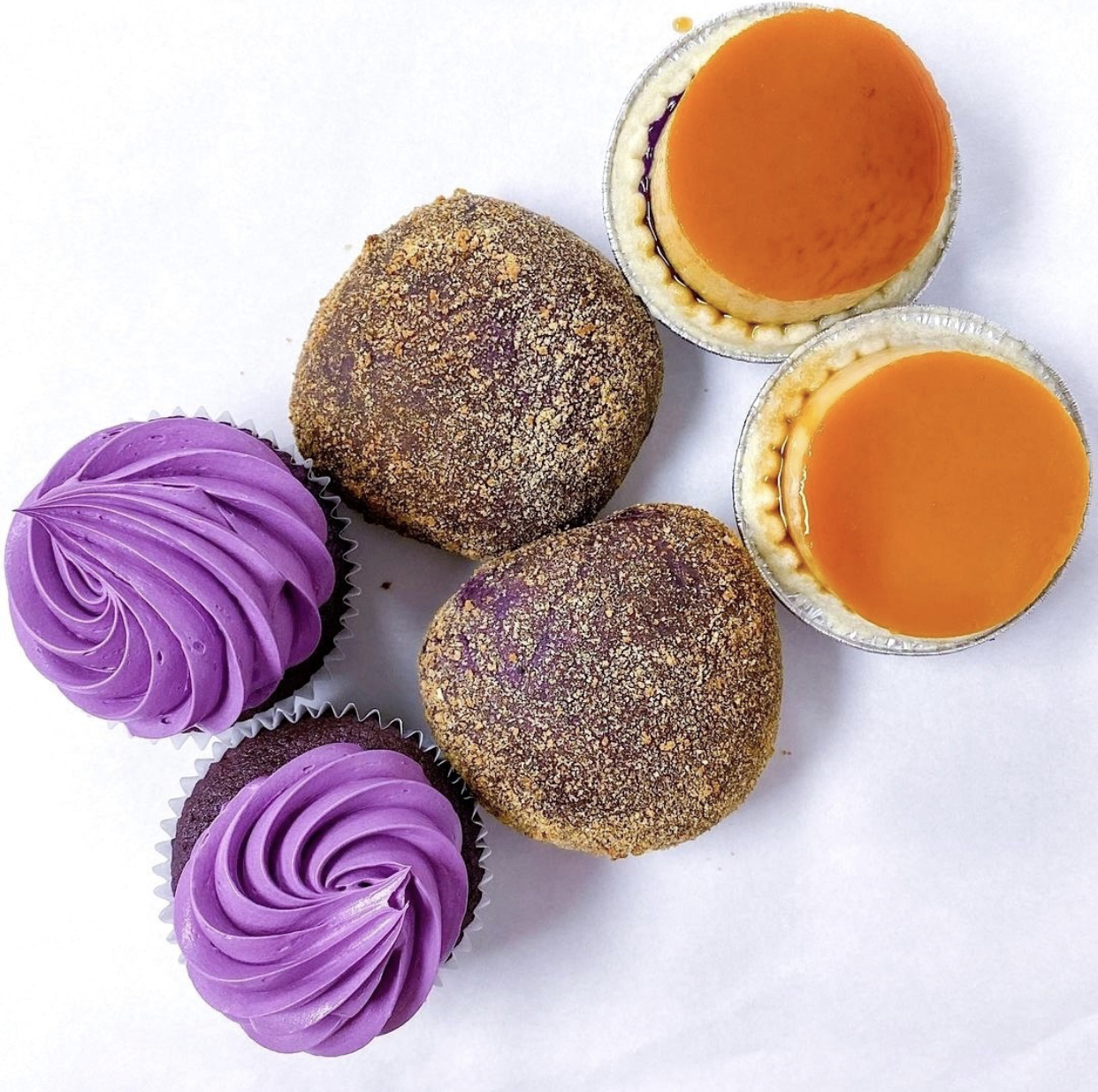
When Gemma Ballesteros opened her Filipino bakery Marley’s Treats 11 years ago, she says, her ube-flavored cupcakes weren’t especially popular.
Sure, ube was a nostalgic taste for Filipino Americans. But influencers hadn’t yet given the purple sweet potatoes the title of world’s most Instagrammable food. And they certainly hadn’t yet become such a sensation here in Northern California that event planners would be inspired to organize not one, not two, but three separate ube festivals on consecutive weekends. Literally.
“It just became a craze,” says Ballesteros. It’s not for nothing that the branding for her Hayward bakery leans hard into ube’s distinctive bright purple hue, which itself has become a marker of cultural pride and identity for many Bay Area Filipinos.
It’s against this backdrop that Kapwa Gardens, the SoMa Filipino cultural district’s new outdoor event space, hosts the venue’s second annual “celebration of all things ube,” Yum Yams, on Saturday, April 23. This year, 23 different vendors will be decked out in their finest bright-purple regalia, spread between Kapwa’s main courtyard and an adjacent alleyway (dubbed “Ube Alley”). In addition to the usual array of halo-halos and ube cookies, doughnuts and ice creams, a number of savory options will be on hand: ube on a hot dog, or as part of the most Filipino American of fusion plates—chicken lumpia with ube waffles. If you have someone in your life who’d kill for a pair of ube-themed earrings, this is your kind of food festival.
(We might as well go ahead and designate April as National Ube Month while we’re at it: Yum Yams comes on the heels of this past weekend’s equally stacked Ube Festival in Tracy. And, for the truly dedicated ube superfan, it’ll serve as warm-up for next weekend’s (unrelated) Ube Fest at San Francisco’s District Six.)

Kapwa Gardens general manager Marissa Macayan acknowledges that there’s a certain trendiness to the current ube craze—that the purple tuber is “really in its time right now.” At the same time, she stresses ube’s cultural significance for Filipinos across generations. “If you grew up eating halo-halo, you’re going to feel some kind of way when you have your first bite of [an ube dessert],” Macayan says. For her, anything ube-flavored always conjures up memories of having shaved ice with her family during the summertime.

